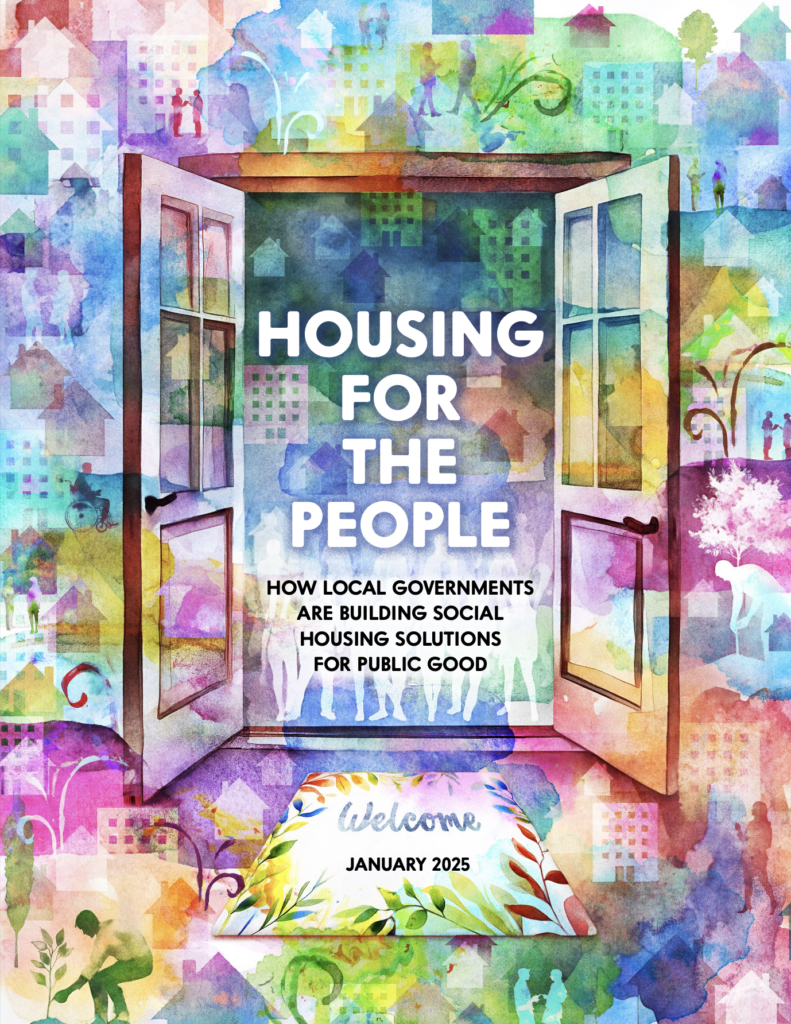
Report
Across the country, landlords are turning to a new tool to raise rents and further exacerbate the housing crisis: software algorithms. Landlords provide information on their rental units and vacancy rates to third party service providers like RealPage. RealPage’s algorithms analyze that private, sensitive data along with vast amounts of public data, then give recommendations to landlords regarding rent prices, concessions, and vacancy rates that promise to boost their profits while artificially driving up housing costs for tenants.
In some metro areas, the use of rent-fixing software algorithms has played a significant role in double-digit rent increases. It’s collusion by another name.
As the housing crisis intensifies, people are struggling to stay in their homes and are getting pushed out of their neighborhoods. Meanwhile, RealPage and corporate landlords are conspiring together to hike up costs on seniors, students, families, teachers, firefighters, immigrants, and anybody who rents.
As part of their efforts to squeeze more and more money from everyday people, corporations are increasingly using collusive algorithms to jack up prices across every aspect of our lives. RealPage’s clients comprise nearly 90% of the U.S. market for multifamily rental housing units (with 50 units or more). With such a large share of the market, decisions made by RealPage clients have a magnified impact on rental prices across the country, dramatically increasing rent prices and eviction rates. Algorithmic price fixing is also used in other ways, from setting hotel prices to setting the wages of working people – all for corporations to make more money at our expense. Fighting rental price fixing is one small step we can all take to try to even the playing field for workers and tenants in a system that’s rigged against them.
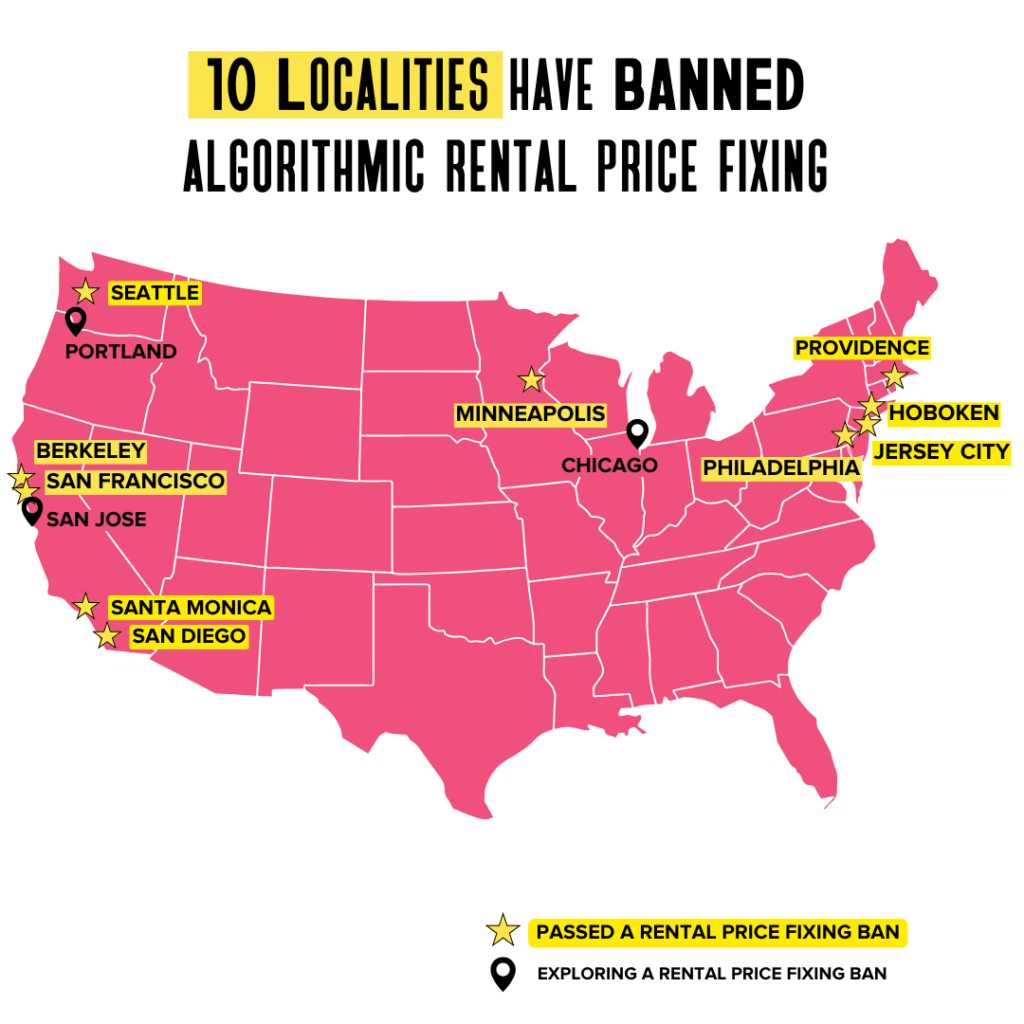
The U.S. Department of Justice and ten states are suing RealPage and six corporate landlords for colluding and hiking up costs on hundreds of thousands of renters across the country. State legislators in Colorado, Washington, New Jersey, Texas, New Mexico, New York, Virginia, Kentucky, Maryland, Connecticut, New Hampshire, Idaho, and California have introduced rental price fixing bans, and Senator Amy Klobuchar has introduced legislation in the U.S. Senate.
At the same time, localities are taking action against rental price fixing to provide their communities with relief from soaring housing costs.
San Francisco, Berkeley, Philadelphia, Minneapolis, San Diego, Jersey City, Providence, Santa Monica, Seattle, and Hoboken have all passed legislation banning landlord collusion through price-fixing algorithmic systems—one important first step—and Portland, Chicago, and San Jose are taking steps to regulate algorithmic rental price fixing in their communities.
Join the growing number of localities taking action against corporate greed!
If you’re interested in getting involved or taking action in your own locality, reach out to helpdesk@localprogress.org.
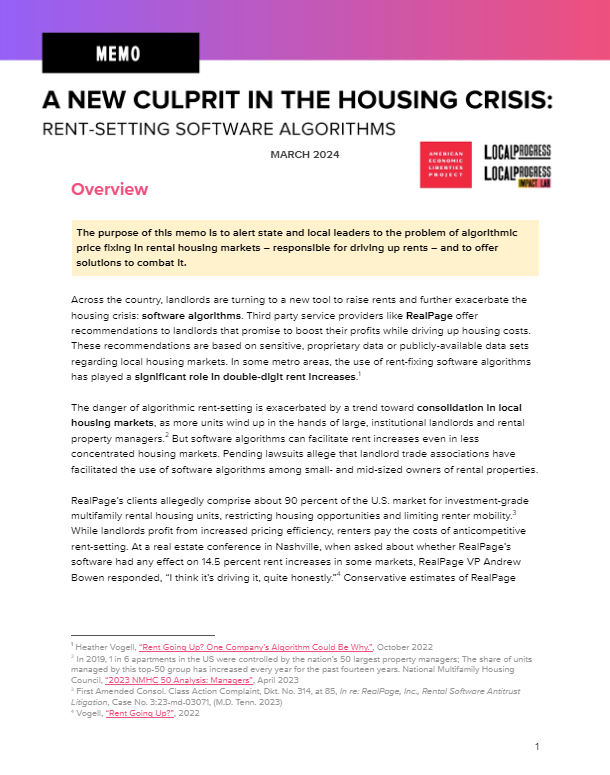
Read our policy memo, co-authored with American Economic Liberties Project, to learn more about what algorithmic rental price fixing is, how it affects renters, and ways to take action.

Check out our talking points for guidance on how to communicate with your community members and other key allies about this issue and why we need to address it.

Use our one pager as a shorter option to provide to colleagues and other allies in conversations to quickly explain what algorithmic rental price fixing is and why it's important to take action.

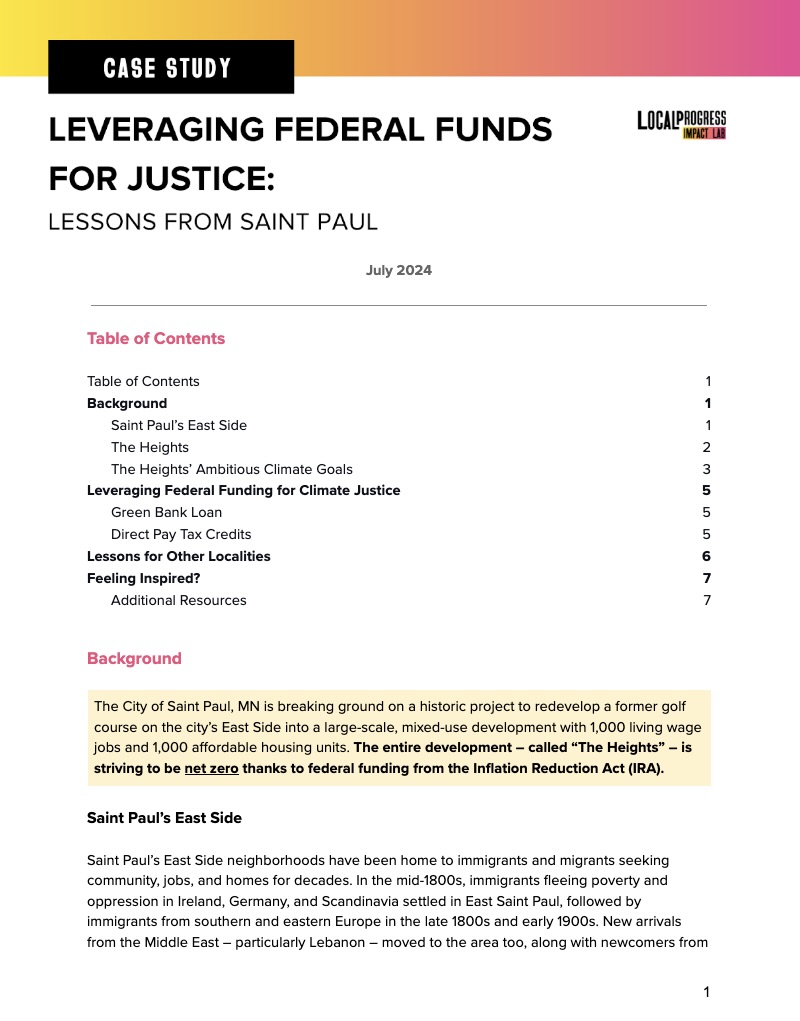
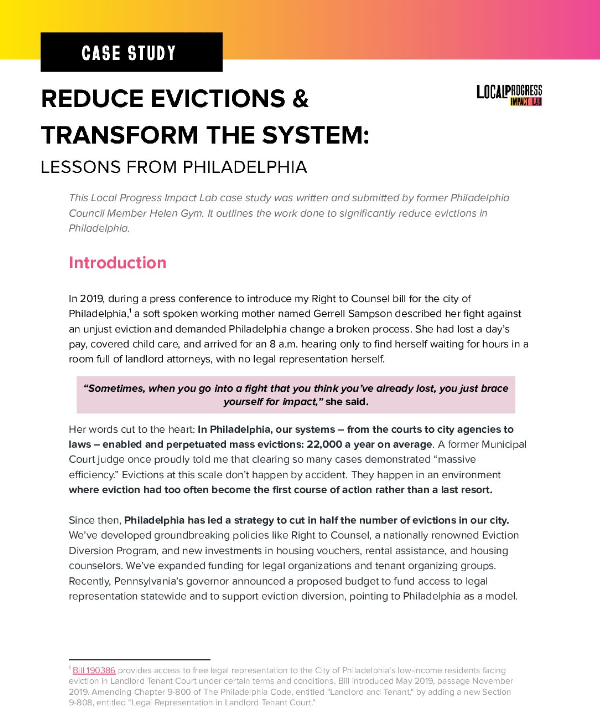
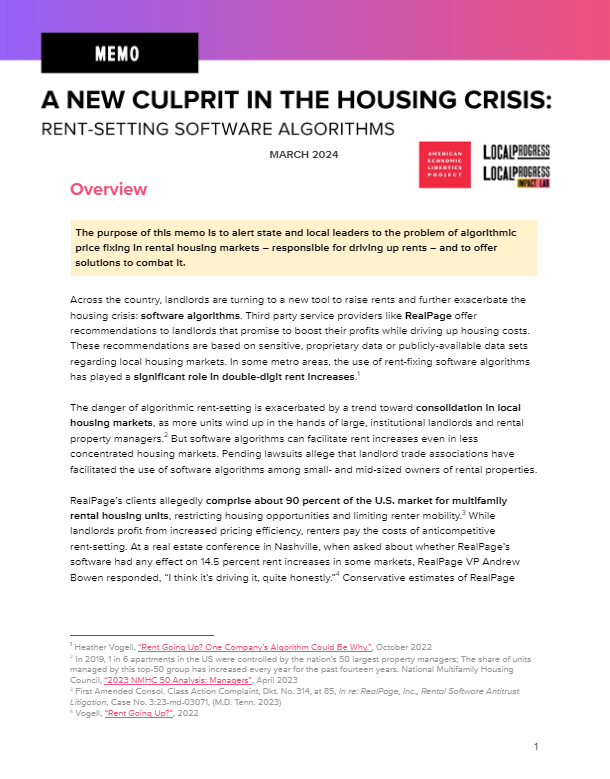
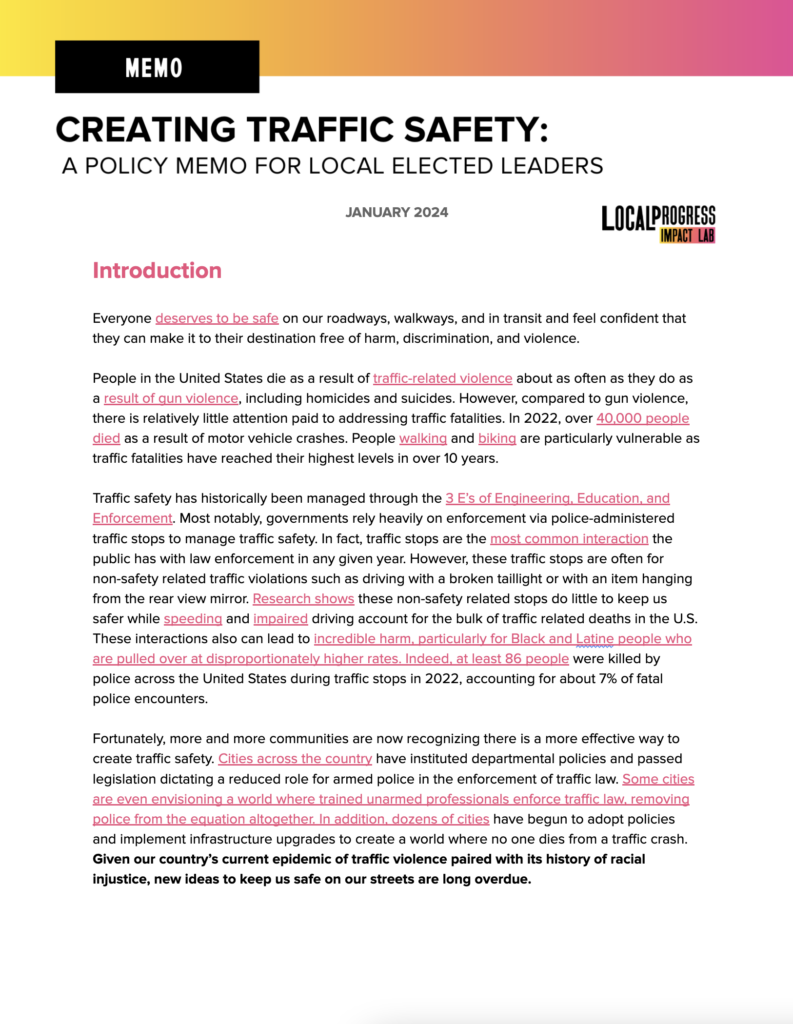
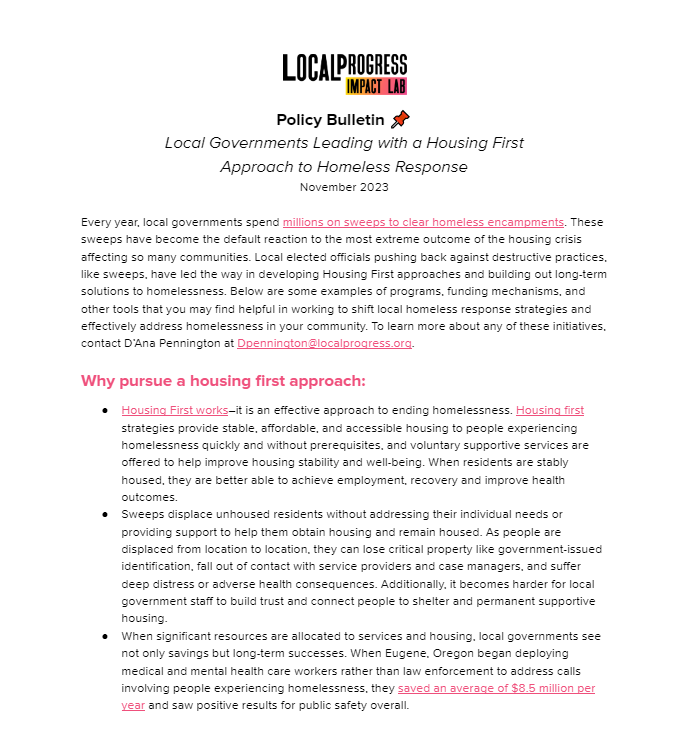



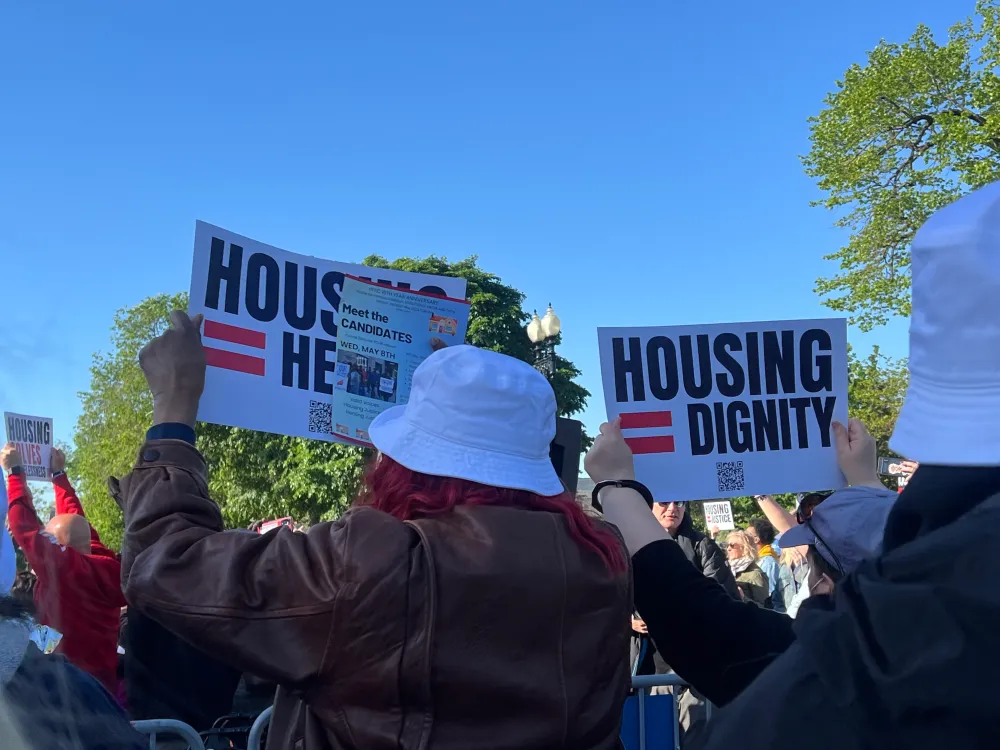
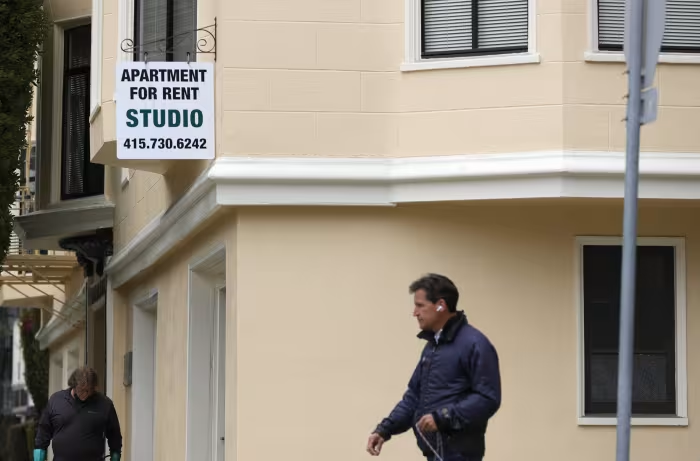
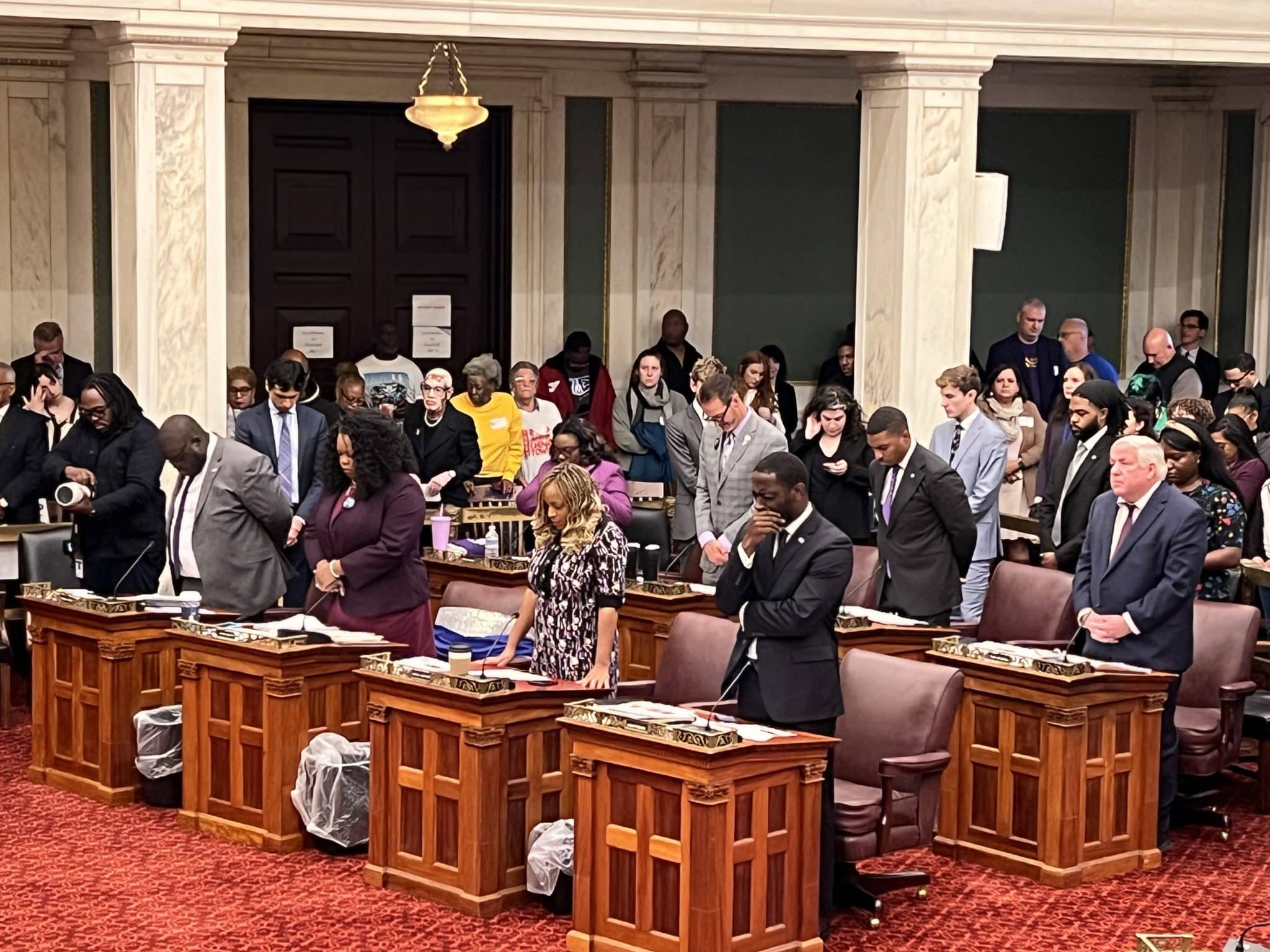
Local Progress is a movement of local elected officials fighting for racial and economic justice. We build power with community to reshape what’s possible in our localities.